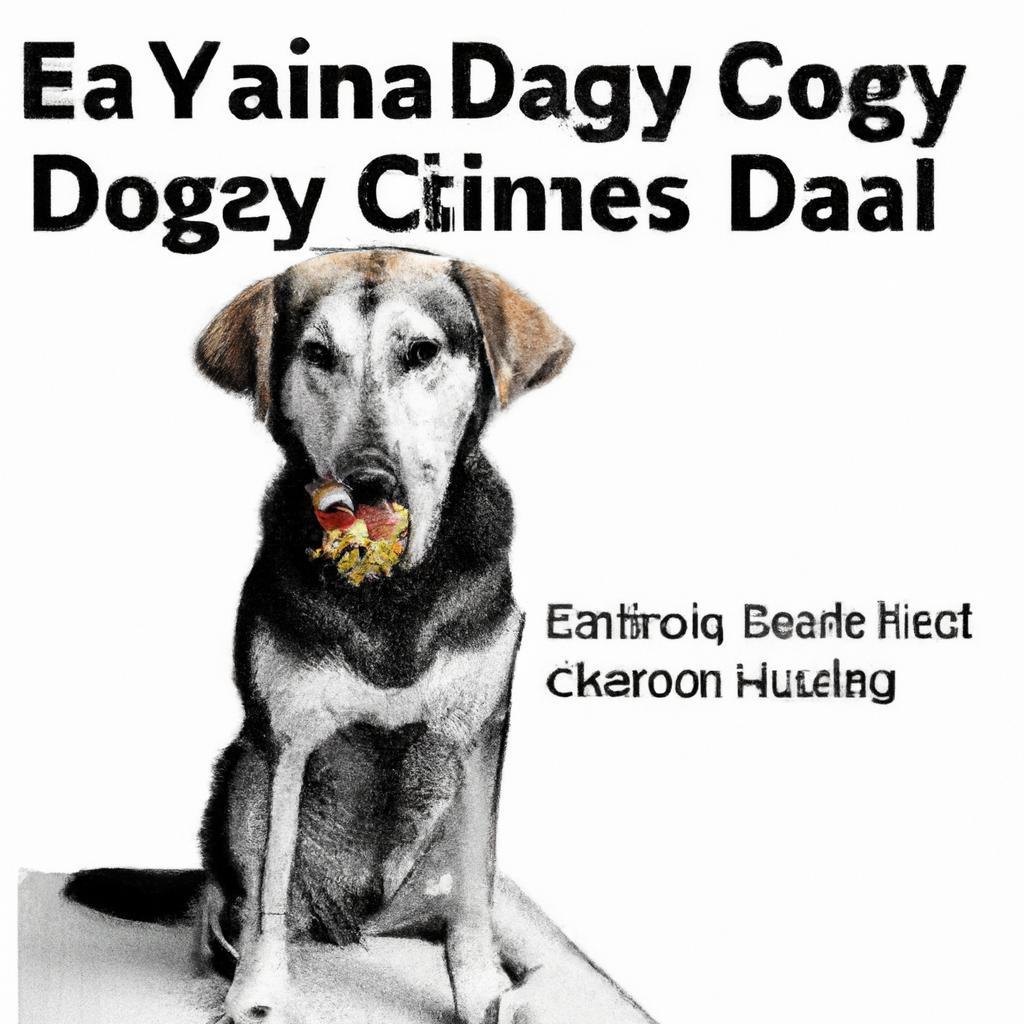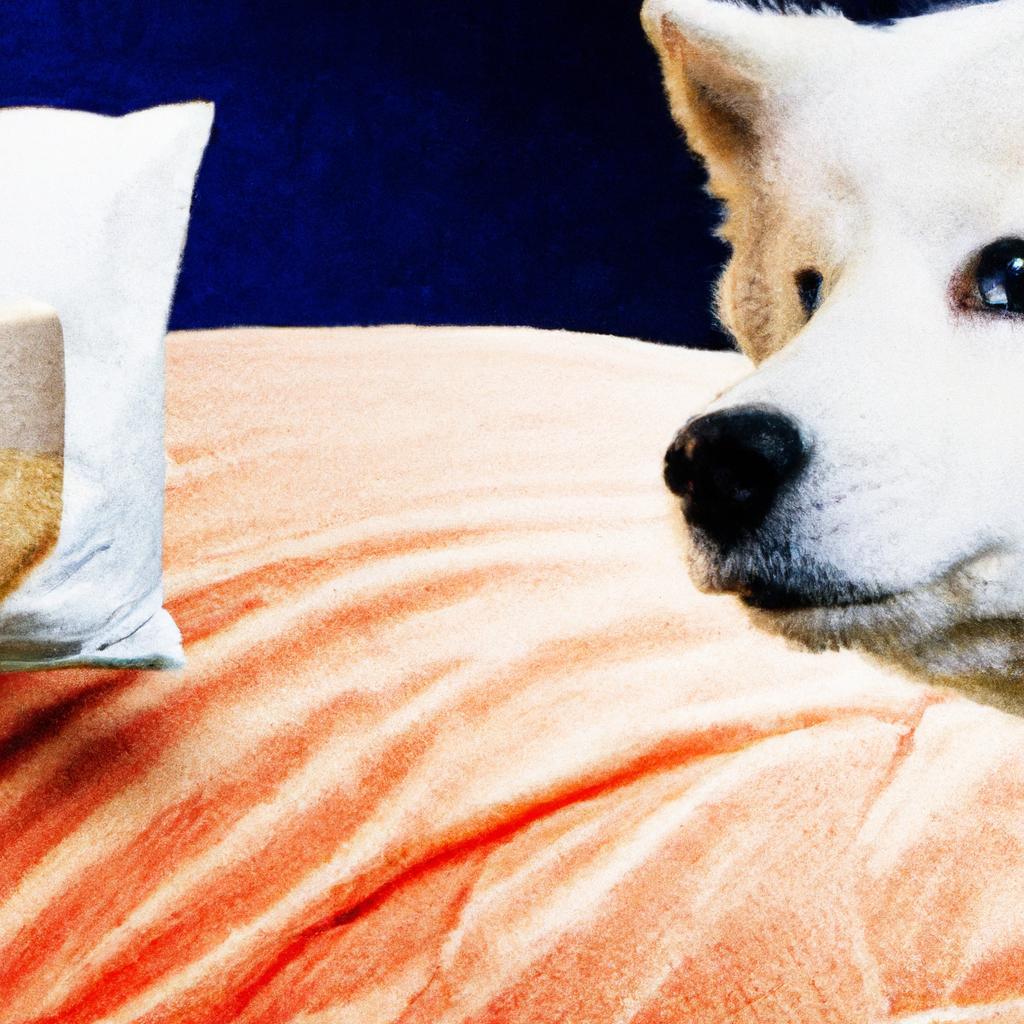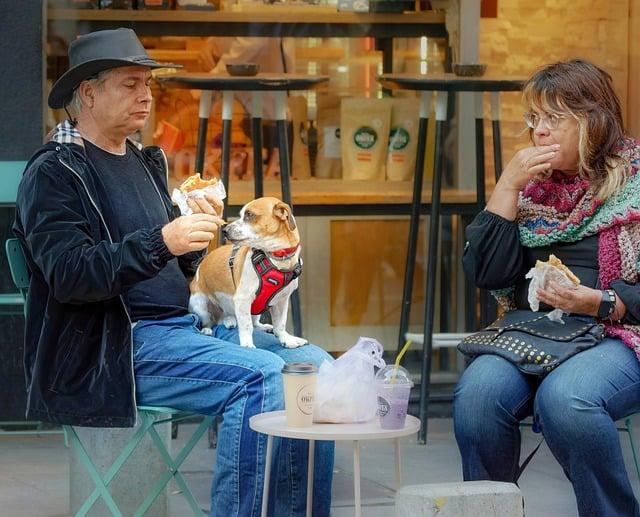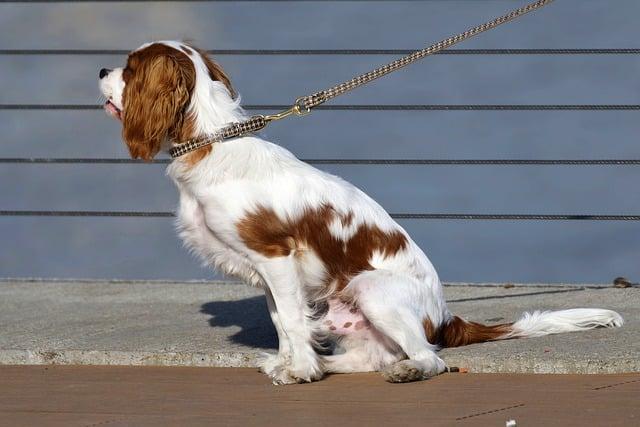Once, a devoted dog owner named Sarah decided to share her dinner with Max, her golden retriever. At first, Max thrived on the variety of flavors, wagging his tail with delight. However, weeks later, he developed digestive issues and lethargy. Sarah learned that while some human foods are safe, a steady diet of them can lead to health problems. Dogs need balanced nutrition tailored to their needs. So, while the occasional treat is fine, it’s crucial to prioritize their health with proper dog food. Choose wisely for your furry friend!
Contents
- Understanding the Nutritional Needs of Dogs in Relation to Human Food
- Evaluating Safe and Unsafe Human Foods for Daily Consumption by Dogs
- The Impact of Regular Human Food on Canine Health and Behavior
- Practical Guidelines for Incorporating Human Food into Your Dogs Diet
- Q&A
Understanding the Nutritional Needs of Dogs in Relation to Human Food
When considering the dietary habits of our canine companions, it’s essential to recognize that dogs have different nutritional requirements than humans. While sharing our meals can be tempting, not all human food is suitable for dogs. Understanding these differences is crucial for maintaining their health and well-being. Dogs thrive on a balanced diet that includes specific nutrients tailored to their biological needs, which often differ significantly from those of humans.
Many human foods can be beneficial for dogs when offered in moderation. For instance, **lean meats**, **certain fruits**, and **vegetables** can provide essential vitamins and minerals. However, it’s vital to ensure that these foods are prepared without harmful additives like salt, sugar, or spices. Some safe options include:
- Cooked chicken or turkey (without bones or skin)
- Carrots and green beans
- Apples (without seeds)
- Plain rice or pasta
Conversely, certain human foods can pose serious health risks to dogs. Foods such as chocolate, grapes, onions, and garlic are toxic and can lead to severe health complications. Additionally, high-fat foods can contribute to obesity and pancreatitis in dogs. Therefore, pet owners must be vigilant about what they share with their furry friends. A well-informed approach to human food can help prevent unintended harm while still allowing for occasional treats.
Ultimately, while it may be possible for dogs to enjoy some human food, it should never replace their regular dog food, which is specifically formulated to meet their nutritional needs. Consulting with a veterinarian can provide tailored advice on incorporating human food into a dog’s diet safely. By prioritizing their health and understanding their unique dietary requirements, pet owners can ensure their dogs lead happy, healthy lives while enjoying the occasional human food treat.
Evaluating Safe and Unsafe Human Foods for Daily Consumption by Dogs
When considering the daily diet of our canine companions, it’s essential to differentiate between safe and unsafe human foods. Many common foods can be beneficial for dogs, providing essential nutrients and variety in their diet. For instance, **lean meats** such as chicken, turkey, and beef can be excellent sources of protein. Additionally, **certain fruits and vegetables**, like carrots, blueberries, and sweet potatoes, offer vitamins and antioxidants that contribute to overall health. These foods can be incorporated into their meals in moderation, enhancing their nutritional intake while keeping mealtime exciting.
However, not all human foods are suitable for dogs. Some items can be toxic or harmful, leading to serious health issues. Foods to avoid include **chocolate**, which contains theobromine, and **grapes or raisins**, known to cause kidney failure. Other dangerous foods include **onions and garlic**, which can damage red blood cells, and **avocado**, which contains persin, potentially harmful to dogs. It’s crucial for pet owners to educate themselves about these risks to ensure their furry friends remain safe and healthy.
Portion control is another vital aspect when introducing human food into a dog’s diet. Even safe foods can lead to obesity and other health problems if given in excess. A good rule of thumb is to limit human food to no more than **10% of their daily caloric intake**. This approach allows dogs to enjoy the occasional treat without compromising their balanced diet. Always consult with a veterinarian to determine appropriate portions and to tailor a diet that meets your dog’s specific needs.
Ultimately, the key to a healthy canine diet lies in balance and moderation. By carefully selecting safe human foods and avoiding harmful ones, pet owners can enhance their dogs’ meals while ensuring their well-being. Regularly incorporating a variety of safe foods can lead to a happier, healthier dog, fostering a stronger bond between pet and owner. Always remember that when in doubt, it’s best to consult with a veterinary professional to make informed decisions about your dog’s diet.
The Impact of Regular Human Food on Canine Health and Behavior
Feeding your dog regular human food can have a profound impact on their overall health and behavior. When done correctly, incorporating safe and nutritious human food into your dog’s diet can enhance their well-being. **Whole foods** such as fruits, vegetables, and lean proteins can provide essential vitamins and minerals that are often lacking in commercial dog food. For instance, carrots and blueberries are not only tasty but also rich in antioxidants, which can help boost your dog’s immune system.
Moreover, the right human food can contribute to better digestion and weight management. Many commercial dog foods are high in fillers and low-quality ingredients, which can lead to obesity and related health issues. By offering your dog wholesome options like **sweet potatoes** or **brown rice**, you can promote a healthier weight and improve their digestive health. These foods are not only more satisfying but also provide the necessary fiber that aids in digestion.
Behaviorally, the inclusion of human food can also play a significant role. Dogs are social animals that thrive on interaction and bonding with their owners. Sharing a meal or treating them with human food can strengthen this bond, making your dog feel more secure and loved. Additionally, certain foods can have calming effects; for example, **oatmeal** can help soothe anxious dogs, while **pumpkin** can aid in calming upset stomachs, leading to a more balanced temperament.
However, it is crucial to approach this practice with caution. Not all human foods are safe for dogs, and some can even be toxic. Foods such as chocolate, grapes, and onions should be strictly avoided. Always consult with your veterinarian before introducing new foods into your dog’s diet to ensure they are appropriate and beneficial. By carefully selecting the right human foods, you can significantly enhance your dog’s health and happiness, creating a more fulfilling life for both you and your furry companion.
Practical Guidelines for Incorporating Human Food into Your Dogs Diet
When considering the inclusion of human food in your dog’s diet, it’s essential to focus on balance and moderation. Dogs thrive on a diet that is primarily formulated for their specific nutritional needs, but incorporating human food can enhance their meals and provide additional nutrients. Start by selecting safe and healthy options such as **lean meats**, **vegetables**, and **fruits**. Always ensure that these foods are cooked without harmful additives like salt, sugar, or spices, which can be detrimental to your dog’s health.
Before introducing any new human food, consult with your veterinarian to determine the best choices for your dog’s individual dietary requirements. Some dogs may have allergies or sensitivities that could be aggravated by certain foods. A gradual introduction is key; begin with small amounts to monitor for any adverse reactions. This approach not only helps in identifying potential issues but also allows your dog to adjust to the new flavors and textures.
Portion control is another critical aspect when adding human food to your dog’s diet. Treat these additions as supplements rather than replacements for their regular meals. A good rule of thumb is to ensure that human food constitutes no more than **10% of your dog’s daily caloric intake**. This practice helps maintain a balanced diet while preventing obesity and other health issues associated with overfeeding. Keep an eye on your dog’s weight and overall health, adjusting portions as necessary.
Lastly, make mealtime enjoyable and engaging by incorporating human food creatively. You can mix small amounts of cooked chicken or vegetables into their kibble or use fruits as a healthy treat during training sessions. Remember, the goal is to enhance their diet without compromising their health. By following these practical guidelines, you can safely and effectively incorporate human food into your dog’s daily routine, enriching their life and strengthening your bond.
Q&A
-
Can dogs eat human food every day?
While some human foods are safe for dogs, feeding them human food every day is not advisable. A balanced diet specifically formulated for dogs ensures they receive all the necessary nutrients. Regularly feeding them human food can lead to nutritional imbalances and health issues.
-
What human foods are safe for dogs?
Many human foods can be safely shared with dogs, including:
- Cooked lean meats (chicken, turkey, beef)
- Fruits (apples, blueberries, bananas)
- Vegetables (carrots, green beans, sweet potatoes)
- Plain rice and pasta
Always ensure these foods are prepared without harmful additives like salt, sugar, or spices.
-
Are there human foods that dogs should avoid?
Yes, certain human foods can be toxic to dogs. Avoid feeding them:
- Chocolate
- Onions and garlic
- Grapes and raisins
- Xylitol (found in sugar-free products)
These foods can cause serious health problems and should never be given to dogs.
-
How can I safely incorporate human food into my dog’s diet?
If you wish to include human food in your dog’s diet, do so in moderation. Use it as an occasional treat rather than a daily staple. Always consult your veterinarian for personalized advice and to ensure your dog’s dietary needs are met.
while sharing your meals with your furry friend can be tempting, it’s essential to prioritize their health. Opt for dog-safe human foods in moderation, ensuring a balanced diet tailored to their needs. Your dog’s well-being depends on it!

大家好,我是彼得潘,專業的手法身體治療師。我喜歡探索和研究各種主題,並透過與人工智慧的合作分享專業、實用、有趣的文章。我們定期進行人工審核,以確保內容的準確性。如果您發現文章中有任何不準確的地方,請隨時與我們聯繫,我們會及時糾正。您可以透過 [email protected] 與我們聯繫。



